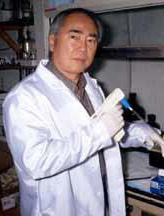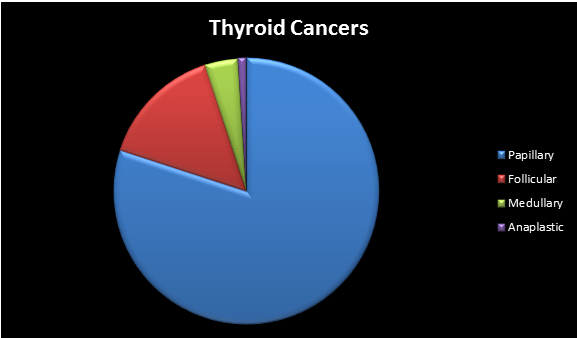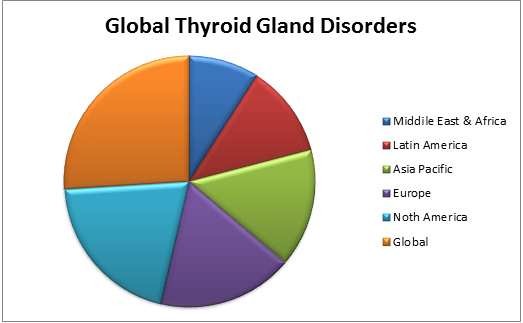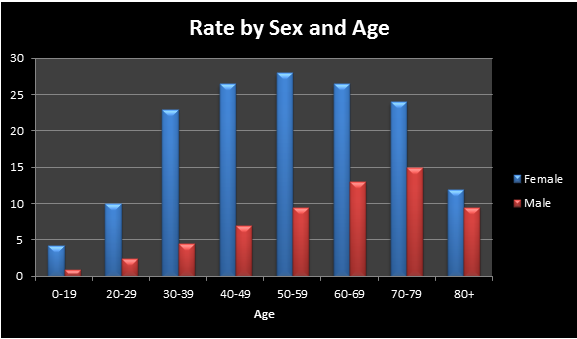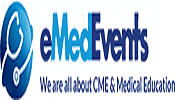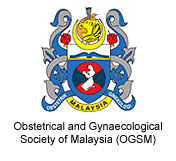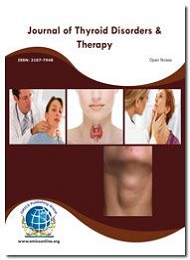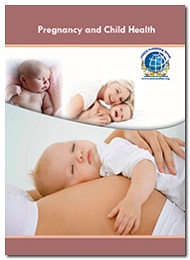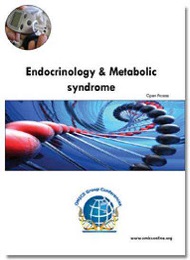Theme: Thyroid Therapy: Promising the dream of offspring
Thyroid 2018
About Conference
ConferenceSeries Ltd welcomes you at 2nd International Conference on Thyroid and Pregnancy from September 03-04, 2018 at Auckland, New Zealand.
Thyroid 2018 Conference which melds brief keynote presentations, speaker talks, Exhibition, Symposia, and Workshops. Thyroid 2018 is one of the Thyroid and Pregnancy meetings which will be visited by all the prestigious thyroidologists, gynecologists, educators, fiery inspectors, postgraduates, affiliations, business meanders under a solitary rooftop. This Thyroid conference or rather all Thyroid meeting 2018, Thyroid events, Thyroid meetings will help in frameworks organization, B2B teaming up amidst specialists and academicians. We have dealt with various compelling Thyroid and pregnancy events and Thyroid gatherings and develops incredible relations bringing the researchers and associations together. Thyroid conferences, gynecologists get-togethers and this events are crucial for the essential people to think about the most basic bit of human body.
Thyroid 2018 will join world-class teachers, scientists and Thyroidologists and gynecologists to discuss methodology for ailment remediation Thyroid and Pregnancy, Thyroid Gland, Goiter, Hyperthyroidism, Hypothyroidism, Thyroid and Development, Thyroid Hormone Action & Metabolism, Thyroid Disorders, Thyroid Cancer, Endocrine and Thyroid Surgery, Thyroid Eye Disease, Diagnostic Techniques, Obstetrics and Gynecology, Contraception and Reproductive Health, Fertility and Infertility, Illnesses & Infections in Pregnancy, Endocrine Diseases in Pregnancy, Cardiovascular Disease and Pregnancy/ Pregnancy and Heart Disease, Diseases and Conditions of pregnancy, Types of Autoimmune Diseases in Pregnancy, Fetal and Maternal health, Pregnancy & Sexually Transmitted Diseases, Surgical Disorders in Pregnancy, Complications of pregnancy, Ayurveda treatment and Medicine for Pregnancy, Medication and Therapy, Nutrition & Diet, Clinical Studies & Case Reports. Thyroid conferences and meetings are planned to give varying and stream preparing that will keep helpful specialists next to each other of the issues impacting the expectation, finding and treatment of Thyroid and pregnancy. The assembling will be dealt with around the subject " Thyroid Therapy: Promising the dream of offspring".
ConferenceSeries Ltd deals with a meeting course of action of 1000+ Global Events thorough of 300+ Conferences, 500+ Upcoming and Previous Symposiums and Workshops in USA, Europe and Asia with sponsorship from 1000 more sensible social requests and disseminates 700+ Open get to journals which contains more than 30000 unmistakable personalities, reputed specialists as article board people.
WHY SHOULD YOU ATTEND?
The Thyroid 2018 conference is focused on thyroid biology, Pregnancy and the prevention and treatment of thyroid disorders and pregnancy through excellence and innovation in research, clinical care, education, and public health. This is your single most obvious opportunity to accomplish the greatest accumulation of individuals from the mending focuses, Universities, bunch, etc. This Thyroid conference in 2018 will coordinate appears, disperse information, meet with recurring pattern and potential investigators and get name affirmation at this 2-day event. Broadly acclaimed speakers, the most recent frameworks, methodologies, and the most current updates in Thyroid and Pregnancy field are indications of this conference. hear innovative talks on clinical topics, participate in interactive sessions, develop professionally with state of the art information, and meet with friends and colleagues.
Target Audience:
· Students, Scientists
· Researchers
· Faculty
· Medical Colleges
· Associations and Societies
· Business Entrepreneurs
· Training Institutes
· Manufacturing Medical Devices Companies
Track 1: Thyroid and Pregnancy
The thyroid diseases hyperthyroidism and hypothyroidism are relatively common in pregnancy and important to treat. The thyroid is an organ located in the front of your neck that releases hormones that regulate your metabolism (the way your body uses energy), heart and nervous system, weight, body temperature, and many other processes in the body.
Related Conferences:
20th Asia Pacific Diabetes Conference July 9-11, 2018 Sydney, Australia; International Conference on Diabetes and its Complications May 21-22, 2018 Osaka, Japan; 28th World Congress on Diabetes, Obesity & Heart August 20-22, 2018 Tokyo, Japan; 11th World Congress on Endocrinology and Metabolic Disorders September 3-5, 2018 Auckland, New Zealand; 12th International Conference on Endocrinology, Diabetes and Metabolism October 15-17, 2018 Osaka, Japan.
Track 2: Thyroid Gland
The thyroid is a butterfly-shaped gland that lies in front of the windpipe (trachea), just below the voice box (larynx). The thyroid gland uses iodine from food to make two thyroid hormones: thyroxine (T4) and triiodothyronine (T3). The thyroid's hormones regulate vital body functions, including Breathing, Heart rate, Central and peripheral nervous systems, Body weight, Muscle strength, Menstrual cycles, Body temperature, Cholesterol levels and Much more.
Related Conferences:
International Conference on Diabetes and its Complications May 21-22, 2018 Osaka, Japan; 28th World Congress on Diabetes, Obesity & Heart August 20-22, 2018 Tokyo, Japan; 11th World Congress on Endocrinology and Metabolic Disorders September 3-5, 2018 Auckland, New Zealand; 12th International Conference on Endocrinology, Diabetes and Metabolism October 15-17, 2018 Osaka, Japan; 20th Asia Pacific Diabetes Conference July 9-11, 2018 Sydney, Australia.
Track 3: Goiter
A goitre or goiter is a swelling in the neck resulting from an enlarged thyroid gland. The term is also used to describe an enlarged thyroid. A goitre is associated with a thyroid that is not functioning properly. Worldwide, the most common cause for goitre is iodine deficiency, usually seen in countries that do not use iodized salt. Selenium deficiency is also considered a contributing factor. In countries that use iodized salt, Hashimoto's thyroiditis is the most common cause. Goitre can also result from cyanide poisoning; this is particularly common in tropical countries where people eat the cyanide-rich cassava root as the staple food.
Related Conferences:
28th World Congress on Diabetes, Obesity & Heart August 20-22, 2018 Tokyo, Japan; 11th World Congress on Endocrinology and Metabolic Disorders September 3-5, 2018 Auckland, New Zealand; 12th International Conference on Endocrinology, Diabetes and Metabolism October 15-17, 2018 Osaka, Japan; 20th Asia Pacific Diabetes Conference July 9-11, 2018 Sydney, Australia; International Conference on Diabetes and its Complications May 21-22, 2018 Osaka, Japan.
Track 4: Hyperthyroidism
Hyperthyroidism (overactive thyroid) is a condition in which your thyroid gland produces too much of the hormone thyroxine. Hyperthyroidism can accelerate your body's metabolism significantly, causing sudden weight loss, a rapid or irregular heartbeat, sweating, and nervousness or irritability.
Related Conferences:
11th World Congress on Endocrinology and Metabolic Disorders September 3-5, 2018 Auckland, New Zealand; 12th International Conference on Endocrinology, Diabetes and Metabolism October 15-17, 2018 Osaka, Japan; 20th Asia Pacific Diabetes Conference July 9-11, 2018 Sydney, Australia; International Conference on Diabetes and its Complications May 21-22, 2018 Osaka, Japan; 28th World Congress on Diabetes, Obesity & Heart August 20-22, 2018 Tokyo, Japan.
Track 5: Hypothyroidism
Hypothyroidism is an underactive thyroid gland. Hypothyroidism means that the thyroid gland can’t make enough thyroid hormone to keep the body running normally. People are hypothyroid if they have too little thyroid hormone in the blood.
Related Conferences:
12th International Conference on Endocrinology, Diabetes and Metabolism October 15-17, 2018 Osaka, Japan; 20th Asia Pacific Diabetes Conference July 9-11, 2018 Sydney, Australia; International Conference on Diabetes and its Complications May 21-22, 2018 Osaka, Japan; 28th World Congress on Diabetes, Obesity & Heart August 20-22, 2018 Tokyo, Japan; 11th World Congress on Endocrinology and Metabolic Disorders September 3-5, 2018 Auckland, New Zealand.
Track 6: Thyroid and Development
The boundary endoderm in the floor region forms a pocket (marked by the foramen cecum) that separates from the surface and forms the thyroid. Cells originate on the surface of the floor and descend into mesoderm above aortic sac and into the hypopharyngeal eminence as "cords". These cells continue to descend until they reach their final destination in the neck adjacent to the thyroid cartilage.
Related Conferences:
20th Asia Pacific Diabetes Conference July 9-11, 2018 Sydney, Australia; International Conference on Diabetes and its Complications May 21-22, 2018 Osaka, Japan; 28th World Congress on Diabetes, Obesity & Heart August 20-22, 2018 Tokyo, Japan; 11th World Congress on Endocrinology and Metabolic Disorders September 3-5, 2018 Auckland, New Zealand; 12th International Conference on Endocrinology, Diabetes and Metabolism October 15-17, 2018 Osaka, Japan.
Track 7: Thyroid Hormone Action & Metabolism
Thyroid hormone plays pivotal roles in growth, differentiation, development and metabolic homeostasis via thyroid hormone receptors (TRs) by controlling the expression of TR target genes. The transcriptional activity of TRs is modulated by multiple factors including various TR isoforms, diverse thyroid hormone response elements, different heterodimeric partners, coregulators, and the cellular location of TRs. In the present review, we summarize recent advance in understanding the molecular mechanisms of thyroid hormone action obtained from human subject research, thyroid hormone mimetics application, TR isoform-specific knock-in mouse models, and mitochondrion study with highlights in metabolic regulations.
Related Conferences:
International Conference on Diabetes and its Complications May 21-22, 2018 Osaka, Japan; 28th World Congress on Diabetes, Obesity & Heart August 20-22, 2018 Tokyo, Japan; 11th World Congress on Endocrinology and Metabolic Disorders September 3-5, 2018 Auckland, New Zealand; 12th International Conference on Endocrinology, Diabetes and Metabolism October 15-17, 2018 Osaka, Japan; 20th Asia Pacific Diabetes Conference July 9-11, 2018 Sydney, Australia.
Track 8: Thyroid Disorders
Thyroid disorders are conditions that affect the thyroid gland, a butterfly-shaped gland in the front of the neck. The thyroid has important roles to regulate numerous metabolic processes throughout the body. Different types of thyroid disorders affect either its structure or function.
Related Conferences:
28th World Congress on Diabetes, Obesity & Heart August 20-22, 2018 Tokyo, Japan; 11th World Congress on Endocrinology and Metabolic Disorders September 3-5, 2018 Auckland, New Zealand; 12th International Conference on Endocrinology, Diabetes and Metabolism October 15-17, 2018 Osaka, Japan; 20th Asia Pacific Diabetes Conference July 9-11, 2018 Sydney, Australia; International Conference on Diabetes and its Complications May 21-22, 2018 Osaka, Japan.
Track 9: Thyroid Cancer
Thyroid cancer is a disease that you get when abnormal cells begin to grow in your thyroid gland. Thyroid cancer is an uncommon type of cancer. Most people who have it do very well, because the cancer is usually found early and the treatments work well. After it is treated, thyroid cancer may come back, sometimes many years after treatment. Females are more likely to have thyroid cancer at a ratio of 3:1. Thyroid cancer can occur in any age group, although it is most common after age 30.
Related Conferences:
11th World Congress on Endocrinology and Metabolic Disorders September 3-5, 2018 Auckland, New Zealand; 12th International Conference on Endocrinology, Diabetes and Metabolism October 15-17, 2018 Osaka, Japan; 20th Asia Pacific Diabetes Conference July 9-11, 2018 Sydney, Australia; International Conference on Diabetes and its Complications May 21-22, 2018 Osaka, Japan; 28th World Congress on Diabetes, Obesity & Heart August 20-22, 2018 Tokyo, Japan.
Track 10: Endocrine and Thyroid Surgery
The thyroid gland is an important gland in the endocrine system. Located in the neck, the thyroid gland consists of two lobes which sit to the right and the left of the trachea, or windpipe. The two lobes are connected by a thyroid tissue that runs across the front of the trachea.
Related Conferences:
12th International Conference on Endocrinology, Diabetes and Metabolism October 15-17, 2018 Osaka, Japan; 20th Asia Pacific Diabetes Conference July 9-11, 2018 Sydney, Australia; International Conference on Diabetes and its Complications May 21-22, 2018 Osaka, Japan; 28th World Congress on Diabetes, Obesity & Heart August 20-22, 2018 Tokyo, Japan; 11th World Congress on Endocrinology and Metabolic Disorders September 3-5, 2018 Auckland, New Zealand.
Track 11: Thyroid Eye Disease
Thyroid Eye Disease (also known as Graves' ophthalmopathy, thyroid-associated ophthalmopathy, thyrotoxic exophthalmos, dysthyroid ophthalmopathy, and several other terms) is orbitopathy associated with thyroid dysfunction. The cause of thyroid eye disease is unknown. Thyroid eye disease is typically associated with Graves hyperthyroidism but can also occur with immune-induced hypothyroidism or in the absence of thyroid dysfunction. The course of ophthalmic changes associated with thyroid eye disease does not necessarily correlate with thyroid function.
Related Conferences:
20th Asia Pacific Diabetes Conference July 9-11, 2018 Sydney, Australia; International Conference on Diabetes and its Complications May 21-22, 2018 Osaka, Japan; 28th World Congress on Diabetes, Obesity & Heart August 20-22, 2018 Tokyo, Japan; 11th World Congress on Endocrinology and Metabolic Disorders September 3-5, 2018 Auckland, New Zealand; 12th International Conference on Endocrinology, Diabetes and Metabolism October 15-17, 2018 Osaka, Japan.
Track 12: Diagnostic Techniques
Diagnostic techniques and procedures encompass all investigations and tests intended to identify the cause of an illness or disorder. They include, for example, laboratory tests for infectious agents, and imaging techniques, such as radiology and ultrasound examination.
Related Conferences:
International Conference on Diabetes and its Complications May 21-22, 2018 Osaka, Japan; 28th World Congress on Diabetes, Obesity & Heart August 20-22, 2018 Tokyo, Japan; 11th World Congress on Endocrinology and Metabolic Disorders September 3-5, 2018 Auckland, New Zealand; 12th International Conference on Endocrinology, Diabetes and Metabolism October 15-17, 2018 Osaka, Japan; 20th Asia Pacific Diabetes Conference July 9-11, 2018 Sydney, Australia.
Track 13: Obstetrics and Gynecology
Obstetrics and gynecology is the medical specialty that deals with obstetrics and gynecology. Postgraduate training programs for both aspects are usually combined, preparing the practicing obstetrician-gynecologist to be adept at the care of female reproductive organs' health and at the management of pregnancy, although many doctors go on to develop subspecialty interests in one field or the other.
Related Conferences:
28th World Congress on Diabetes, Obesity & Heart August 20-22, 2018 Tokyo, Japan; 11th World Congress on Endocrinology and Metabolic Disorders September 3-5, 2018 Auckland, New Zealand; 12th International Conference on Endocrinology, Diabetes and Metabolism October 15-17, 2018 Osaka, Japan; 20th Asia Pacific Diabetes Conference July 9-11, 2018 Sydney, Australia; International Conference on Diabetes and its Complications May 21-22, 2018 Osaka, Japan.
Track 14: Contraception and Reproductive Health
Birth control, also known as contraception and fertility control, is a method or device used to prevent pregnancy. Birth control has been used since ancient times, but effective and safe methods of birth control only became available in the 20th century. Planning, making available, and using birth control is called family planning. Some cultures limit or discourage access to birth control because they consider it to be morally, religiously, or politically undesirable. Reproductive health implies that people are able to have a responsible, satisfying and safer sex life and that they have the capability to reproduce and the freedom to decide if, when and how often to do so. One interpretation of this implies that men and women ought to be informed of and to have access to safe, effective, affordable and acceptable methods of birth control; also access to appropriate health care services of sexual, reproductive medicine and implementation of health education programs to stress the importance of women to go safely through pregnancy and childbirth could provide couples with the best chance of having a healthy infant.
Related Conferences:
11th World Congress on Endocrinology and Metabolic Disorders September 3-5, 2018 Auckland, New Zealand; 12th International Conference on Endocrinology, Diabetes and Metabolism October 15-17, 2018 Osaka, Japan; 20th Asia Pacific Diabetes Conference July 9-11, 2018 Sydney, Australia; International Conference on Diabetes and its Complications May 21-22, 2018 Osaka, Japan; 28th World Congress on Diabetes, Obesity & Heart August 20-22, 2018 Tokyo, Japan.
Track 15: Fertility and Infertility
“Infertility” is a term that describes when a couple is unable to achieve pregnancy after 1 year of having regular, unprotected sex, or after 6 months if the woman is older than 35 years of age.
The term “infertility” also is used to describe the condition of women who are able to get pregnant but unable to carry a pregnancy to term because of miscarriage, recurrent pregnancy loss, stillbirth, or other problems.
Recurrent pregnancy loss is considered distinct from infertility. Although there may be some overlap, the causes of pregnancy loss, recurrent pregnancy loss, and stillbirth are often different from the causes of infertility.
Related Conferences:
12th International Conference on Endocrinology, Diabetes and Metabolism October 15-17, 2018 Osaka, Japan; 20th Asia Pacific Diabetes Conference July 9-11, 2018 Sydney, Australia; International Conference on Diabetes and its Complications May 21-22, 2018 Osaka, Japan; 28th World Congress on Diabetes, Obesity & Heart August 20-22, 2018 Tokyo, Japan; 11th World Congress on Endocrinology and Metabolic Disorders September 3-5, 2018 Auckland, New Zealand.
Track 16: Illnesses & Infections in Pregnancy
Pregnancy is a normal and healthy state that many women aspire to at some point in their lives. However, pregnancy can make women more susceptible to certain infections. Pregnancy may also make these infections more severe. Even mild infections can lead to serious illness in pregnant women.
Some infections that occur during pregnancy primarily pose a risk to the mother. Other infections can be transmitted to the baby through the placenta or during birth. When this occurs, the baby is at risk for health complications as well.
Some infections that develop during pregnancy can lead to miscarriage, preterm labor, or birth defects. They may even be life-threatening for the mother. To complicate matters, the medications used to treat infections can cause serious side effects, especially for the baby. It’s important to try to prevent infections in pregnancy to minimize risks to both mother and baby.
Related Conferences:
20th Asia Pacific Diabetes Conference July 9-11, 2018 Sydney, Australia; International Conference on Diabetes and its Complications May 21-22, 2018 Osaka, Japan; 28th World Congress on Diabetes, Obesity & Heart August 20-22, 2018 Tokyo, Japan; 11th World Congress on Endocrinology and Metabolic Disorders September 3-5, 2018 Auckland, New Zealand; 12th International Conference on Endocrinology, Diabetes and Metabolism October 15-17, 2018 Osaka, Japan.
Track 17: Endocrine Diseases in Pregnancy
Endocrine disease is common in pregnancy.Endocrine function in the developing fetus is initially almost entirely dependent on the mother, with the fetus becoming less reliant on maternal hormones as the fetal glands develop and mature from the second trimester onwards.
Related Conferences:
International Conference on Diabetes and its Complications May 21-22, 2018 Osaka, Japan; 28th World Congress on Diabetes, Obesity & Heart August 20-22, 2018 Tokyo, Japan; 11th World Congress on Endocrinology and Metabolic Disorders September 3-5, 2018 Auckland, New Zealand; 12th International Conference on Endocrinology, Diabetes and Metabolism October 15-17, 2018 Osaka, Japan; 20th Asia Pacific Diabetes Conference July 9-11, 2018 Sydney, Australia.
Track 18: Cardiovascular Disease and Pregnancy/ Pregnancy and Heart Disease
Cardiovascular disease (CVD) complicates 1% to 4% of pregnancies,1 with congenital heart disease (CHD) being the most common preexisting condition and hypertension the most common acquired condition. The incidence of maternal CVD appears to be growing, likely due to increasing maternal age, cardiovascular risk factors (i.e., obesity, diabetes, and hypertension,) and lifespan of patients with CHD. Studies suggest that pregnancy-related mortality has also increased over the last several decades, with deaths attributable to CVD increasing over the same time period.
Related Conferences:
28th World Congress on Diabetes, Obesity & Heart August 20-22, 2018 Tokyo, Japan; 11th World Congress on Endocrinology and Metabolic Disorders September 3-5, 2018 Auckland, New Zealand; 12th International Conference on Endocrinology, Diabetes and Metabolism October 15-17, 2018 Osaka, Japan; 20th Asia Pacific Diabetes Conference July 9-11, 2018 Sydney, Australia; International Conference on Diabetes and its Complications May 21-22, 2018 Osaka, Japan.
Track 19: Diseases and Conditions of pregnancy
Having certain disorders, such as diabetes and high blood pressure, can increase the risk of problems during pregnancy. If women who have such a disorder wish to become pregnant, they should first talk with a doctor and try to get in the best physical condition possible before they become pregnant. After such women become pregnant, they may need special care, often from an interdisciplinary team. The team may include an obstetrician (who may also be a specialist in care of the disorder during pregnancy), a specialist in the disorder, and other health care practitioners (such as nutritionists).
Related Conferences:
11th World Congress on Endocrinology and Metabolic Disorders September 3-5, 2018 Auckland, New Zealand; 12th International Conference on Endocrinology, Diabetes and Metabolism October 15-17, 2018 Osaka, Japan; 20th Asia Pacific Diabetes Conference July 9-11, 2018 Sydney, Australia; International Conference on Diabetes and its Complications May 21-22, 2018 Osaka, Japan; 28th World Congress on Diabetes, Obesity & Heart August 20-22, 2018 Tokyo, Japan.
Track 20: Types of Autoimmune Diseases in Pregnancy
Autoimmune disorders, including Graves disease, are more common among women, particularly pregnant women. The abnormal antibodies produced in autoimmune disorders can cross the placenta and cause problems in the fetus. Pregnancy affects different autoimmune disorders in different ways.
Related Conferences:
12th International Conference on Endocrinology, Diabetes and Metabolism October 15-17, 2018 Osaka, Japan; 20th Asia Pacific Diabetes Conference July 9-11, 2018 Sydney, Australia; International Conference on Diabetes and its Complications May 21-22, 2018 Osaka, Japan; 28th World Congress on Diabetes, Obesity & Heart August 20-22, 2018 Tokyo, Japan; 11th World Congress on Endocrinology and Metabolic Disorders September 3-5, 2018 Auckland, New Zealand.
Track 21: Fetal and Maternal health
The presence of fetal cells has been associated with both positive and negative effects on maternal health. These paradoxical effects may be due to the fact that maternal and offspring fitness interests are aligned in certain domains and conflicting in others, which may have led to the evolution of fetal microchimeric phenotypes that can manipulate maternal tissues. We use cooperation and conflict theory to generate testable predictions about domains in which fetal microchimerism may enhance maternal health and those in which it may be detrimental. This framework suggests that fetal cells may function both to contribute to maternal somatic maintenance (e.g. wound healing) and to manipulate maternal physiology to enhance resource transmission to offspring (e.g. enhancing milk production).
Related Conferences:
20th Asia Pacific Diabetes Conference July 9-11, 2018 Sydney, Australia; International Conference on Diabetes and its Complications May 21-22, 2018 Osaka, Japan; 28th World Congress on Diabetes, Obesity & Heart August 20-22, 2018 Tokyo, Japan; 11th World Congress on Endocrinology and Metabolic Disorders September 3-5, 2018 Auckland, New Zealand; 12th International Conference on Endocrinology, Diabetes and Metabolism October 15-17, 2018 Osaka, Japan.
Track 22: Pregnancy & Sexually Transmitted Diseases
Sexually transmitted infections (STIs) are infections that can be passed on during sex, and in some cases can be passed from mother to child. If left untreated, STIs can cause serious problems for both mother and child. Numerous sexually transmitted diseases--syphilis, gonococcal infections, group B beta-hemolytic streptococcal infection, chlamydial infections, mycoplasmas, herpes simplex virus, cytomegalovirus infections, hepatitis B viral infections, fungal infection, trichomonas vaginalis, condylomata acuminata, and scabies--are of concern when they occur during pregnancy, either because of their potential adverse effects on the fetus or the chance of a modified reaction in the pregnant woman.
Related Conferences:
International Conference on Diabetes and its Complications May 21-22, 2018 Osaka, Japan; 28th World Congress on Diabetes, Obesity & Heart August 20-22, 2018 Tokyo, Japan; 11th World Congress on Endocrinology and Metabolic Disorders September 3-5, 2018 Auckland, New Zealand; 12th International Conference on Endocrinology, Diabetes and Metabolism October 15-17, 2018 Osaka, Japan; 20th Asia Pacific Diabetes Conference July 9-11, 2018 Sydney, Australia.
Track 23: Surgical Disorders in Pregnancy
The incidence of surgical disease is the same in pregnant and nonpregnant patients. A total of 1.5–2% of all pregnancies undergo nonobstetric surgical intervention. The most common surgical disorders in pregnancy are appendicitis, cholecystitis, intestinal obstruction, adnexal torsion, trauma, and cervical and breast disease. Surgical disorders can be either incidental to or directly related to the pregnancy. Diagnostic evaluation requires gentle, sensitive elicitation of physical signs, at times without sophisticated diagnostic aids that involve risk to the developing fetus. Good judgment regarding the timing, methods, and extent of treatment is important. In the absence of peritonitis, visceral perforation, or hemorrhage, surgical disorders during gestation generally have little effect on placental function and fetal development.
Related Conferences:
28th World Congress on Diabetes, Obesity & Heart August 20-22, 2018 Tokyo, Japan; 11th World Congress on Endocrinology and Metabolic Disorders September 3-5, 2018 Auckland, New Zealand; 12th International Conference on Endocrinology, Diabetes and Metabolism October 15-17, 2018 Osaka, Japan; 20th Asia Pacific Diabetes Conference July 9-11, 2018 Sydney, Australia; International Conference on Diabetes and its Complications May 21-22, 2018 Osaka, Japan.
Track 24: Complications of pregnancy
Pregnancy can be a time of excitement and anticipation but some women may experience complications such as bleeding during their pregnancy or high blood pressure which can be an indication of pre-eclampsia. Other complications may include itching or severe vomiting during pregnancy.
Related Conferences:
11th World Congress on Endocrinology and Metabolic Disorders September 3-5, 2018 Auckland, New Zealand; 12th International Conference on Endocrinology, Diabetes and Metabolism October 15-17, 2018 Osaka, Japan; 20th Asia Pacific Diabetes Conference July 9-11, 2018 Sydney, Australia; International Conference on Diabetes and its Complications May 21-22, 2018 Osaka, Japan; 28th World Congress on Diabetes, Obesity & Heart August 20-22, 2018 Tokyo, Japan.
Track 25: Ayurveda treatment and Medicine for Pregnancy
Ayurveda considers that any disease in a pregnant woman should be treated with mild drugs that are compatible and safe for the fetus. Panchakarma (detoxifying procedures) should be avoided during pregnancy, apart from basti (enema) and pichu (tampon) in the eighth and ninth months of pregnancy. According to Ayurveda medication should be avoided during the first three months of pregnancy if possible. Symptomatic treatment with very mild herbs and a suitable diet should be tried and only if the symptoms are severe the disease should be treated with ayurvedic remedies.
Related Conferences:
12th International Conference on Endocrinology, Diabetes and Metabolism October 15-17, 2018 Osaka, Japan; 20th Asia Pacific Diabetes Conference July 9-11, 2018 Sydney, Australia; International Conference on Diabetes and its Complications May 21-22, 2018 Osaka, Japan; 28th World Congress on Diabetes, Obesity & Heart August 20-22, 2018 Tokyo, Japan; 11th World Congress on Endocrinology and Metabolic Disorders September 3-5, 2018 Auckland, New Zealand.
Track 26: Medication and Therapy
Medication management therapy – or MTM – is a treatment system used by doctors and pharmacists to ensure that patients are receiving optimal therapeutic outcomes for the prescription medications that they may be taking. Medication therapy management includes a broad range of professional activities, including but not limited to performing patient assessment and/or a comprehensive medication review, formulating a medication treatment plan, monitoring efficacy and safety of medication therapy, enhancing medication adherence through patient empowerment and education, and documenting and communicating MTM services to prescribers in order to maintain comprehensive patient care.
Related Conferences:
20th Asia Pacific Diabetes Conference July 9-11, 2018 Sydney, Australia; International Conference on Diabetes and its Complications May 21-22, 2018 Osaka, Japan; 28th World Congress on Diabetes, Obesity & Heart August 20-22, 2018 Tokyo, Japan; 11th World Congress on Endocrinology and Metabolic Disorders September 3-5, 2018 Auckland, New Zealand; 12th International Conference on Endocrinology, Diabetes and Metabolism October 15-17, 2018 Osaka, Japan.
Track 27: Nutrition & Diet
In nutrition, diet is the sum of food consumed by a person or other organism. The word diet often implies the use of specific intake of nutrition for health or weight-management reasons (with the two often being related). Although humans are omnivores, each culture and each person holds some food preferences or some food taboos. This may be due to personal tastes or ethical reasons. Individual dietary choices may be more or less healthy.
Complete nutrition requires ingestion and absorption of vitamins, minerals, essential amino acids from protein and essential fatty acids from fat-containing food, also food energy in the form of carbohydrate, protein, and fat. Dietary habits and choices play a significant role in the quality of life, health and longevity.
Related Conferences:
International Conference on Diabetes and its Complications May 21-22, 2018 Osaka, Japan; 28th World Congress on Diabetes, Obesity & Heart August 20-22, 2018 Tokyo, Japan; 11th World Congress on Endocrinology and Metabolic Disorders September 3-5, 2018 Auckland, New Zealand; 12th International Conference on Endocrinology, Diabetes and Metabolism October 15-17, 2018 Osaka, Japan; 20th Asia Pacific Diabetes Conference July 9-11, 2018 Sydney, Australia.
Track 28:Clinical Studies & Case Reports
A medical case report is generally considered a type of anecdotal evidence. Given their intrinsic methodological limitations, including lack of statistical sampling, case reports are placed at the foot of the hierarchy of clinical evidence, together with case series for the clinical reviews. Nevertheless, case reports do have genuinely useful roles in medical research and evidence-based medicine. In particular, they have facilitated recognition of new diseases like Thyroid, Pregnancy and adverse effects of treatments. Case reports have role diseases. They can also help understand the clinical spectrum of rare diseases, as well as unusual presentations of common diseases. They can help generate study hypotheses, including plausible mechanisms. Case reports may also have a role to play in guiding the personalization of disorders and treatments in clinical practice.
Related Conferences:
28th World Congress on Diabetes, Obesity & Heart August 20-22, 2018 Tokyo, Japan; 11th World Congress on Endocrinology and Metabolic Disorders September 3-5, 2018 Auckland, New Zealand; 12th International Conference on Endocrinology, Diabetes and Metabolism October 15-17, 2018 Osaka, Japan; 20th Asia Pacific Diabetes Conference July 9-11, 2018 Sydney, Australia; International Conference on Diabetes and its Complications May 21-22, 2018 Osaka, Japan.
Importance and Scope:
Hypothyroidism is prevalent in all parts of the world. Developed countries mostly suffered due to autoimmunity or congenital hypothyroidism and developing countries get suffered mostly due to iodine deficiency in the diet. This shows an increase in demand and need of novel therapeutics and providing a base for Thyroid Deficiency Treatment Market. Trends also direct towards an increase in hormone-related disorders these days. Thus the estimate of medication intake will boost the thyroid deficiency treatment market. The diagnostics and pathology segment is also improving in the developing countries nowadays which grows the therapeutics market. The research and development activities in the field like emerging novel therapeutics, increasing the efficacy of medicine and reducing allergic reactions would be the cutting edge for the market progress. Selling campaigns initiated by the global players is increasing the market progressively.
Recent epidemiological data from WHO suggests that there are more than 750 million cases globally with a thyroid disorder. Increasing focus by government organizations and private agencies like WHO and pharmaceutical companies to create awareness of thyroid deficiency is fuelling the market growth. Levothyroxine and Cytomel are the most selling drugs in the thyroid deficiency treatment market.
Thyroid Deficiency Treatment Market: Region-wise
North America is the top marketplace for thyroid deficiency treatment because of number of patients. Western Europe is observed as the growing market with the increase in the number of patients than Eastern Europe. The amount of prescribed thyroid hormone used in England only is more than double over the last ten years. More than the developed countries, the developing countries like Asia-Pacific, China, Japan, Middle East and Africa will likely to show tremendous growth in the market in the future due to high prevalence of iodine deficiency, increasing cases of Goiter, the inabilityof in-depth diagnostic work-up, decrease diet and other factors.
Why New Zealand:
Thyroid disease is reasonably common, in New Zealand and in the world. Worldwide, the number of people suffering from some form of thyroid condition is estimated at 200 million. According to the 2006/2007 New Zealand Health Survey (Ministry of Health), 113,200 people in New Zealand over the age of 15 years had a thyroid condition (as diagnosed by a doctor) in that period. The survey results do not provide numbers by type of thyroid condition.
Thyroid disease affects women and men, adults and children, of all ethnicities and all social backgrounds. Thyroid disease does not discriminate. All people can get it, although some are more likely to get it than others.
Just-published research shows Pacific women have the highest rates of thyroid cancer in New Zealand. One theory is that thyroid cancer rates among Pacific women will be largely among those born in the Pacific due to high consumption of iodine-rich seafood among children and young people living in the Pacific.
Rates were higher for women than men, with the highest rates observed among Pacific women – 18.5 per 100,000 compared to 8.3 per 100,000 for MÄori and 5.2 per 100,000 for European/other women. Risk was highest for Pacific women over the age of 45. The higher incidence among women than men in New Zealand is consistent with a female preponderance observed worldwide, and suggests hormonal and reproductive factors play a role. The incidence rate for Pacific men was 2.7 per 100,000 compared to 3.2 for MÄori and 2.2 per for European/other.
Hospitals:
DR JOHN CHAPLIN THYROID, HEAD & NECK SURGERY AUCKLAND
Dr Bill Reeder Medical clinic in Hamilton, New Zealand
Lincoln Hospital
Birthcare maternity hospital
Gore Hospital
Lumsden Maternity Centre
Taupo Maternity Unit
Tuatapere Maternity Hospital
Universities:
The University of Auckland
University of Otago
Massey University
Centers:
Thyroid Support New Zealand
Family Life Crisis Pregnancy Centre
Bella Mama Pregnancy Spa & Wellness Centre
Auckland Medical Aid Centre
Conference Series successfully hosted its premier International Conference on Thyroid Disorders and Treatment at Philadelphia, USA during 29 February to 01 March. The conference was organized with a focus on “Outstanding Scientific Developments and Treatment Strategies for Thyroid Disorders” and it was a great success where eminent keynote speakers from various reputed organizations made their resplendent presence and addressed the gathering.
Thyroid 2016 was marked by the attendance of Editorial Board Members of supported Journals like Thyroid Disorders & Therapy, Endocrinology & Metabolic Syndrome and Journal of Cancer Science & Therapy. Many Scientists, young and brilliant Researchers, Business Delegates and talented Student Communities representing from varies countries made this conference fruitful and productive driving the two-day event into the path of success with thought provoking keynote and plenary presentations.
The International Conference on Thyroid Disorders and Treatment covered the following scientific sessions and discussions:
· Thyroid Physiology
· Thyroid: Diagnosis and Clinical Evaluation
· Thyroid: Clinical Studies & Case Reports
· Thyroid Cancer: Treatment & Therapy
· Parathyroid: Treatment & Therapy
· Thyroid Disorders: In Children, Teens and Adolescents
· Thyroid: Nutrition & Supplements
· Thyroid Surgery & Care
· Thyroid Challenges & Improvements
· Thyroid Therapy: Medications & Remedies
Thyroid 2016 Organizing Committee would like to thank for attendees of the conference.
With the feedback from the participants and supporters of Thyroid 2016, Conference Series is glad to announce 2nd International Conference on Thyroid and Pregnancy (Thyroid 2018) during September 03-04, 2018 at Auckland, New Zealand. Thyroid 2018 will cover some of the most challenging topics and advancements in research in the fields of Thyroid and Pregnancy.
Conference Highlights
- Thyroid and Pregnancy
- Thyroid Gland
- Goiter
- Hyperthyroidism
- Hypothyroidism
- Thyroid and Development
- Thyroid Hormone Action & Metabolism
- Thyroid Disorders
- Thyroid Cancer
- Endocrine and Thyroid Surgery
- Thyroid Eye Disease
- Diagnostic Techniques
- Obstetrics and Gynecology
- Contraception and Reproductive Health
- Fertility and Infertility
- Illnesses & Infections in Pregnancy
- Endocrine Diseases in Pregnancy
- Cardiovascular Disease & Pregnancy/ Pregnancy & Heart Disease
- Diseases and Conditions of pregnancy
- Types of Autoimmune Diseases in Pregnancy
- Fetal and Maternal health
- Pregnancy & Sexually Transmitted Diseases
- Surgical Disorders in Pregnancy
- Complications of pregnancy
- Ayurveda treatment and Medicine for Pregnancy
- Medication and Therapy
- Nutrition & Diet
- Clinical Studies & Case Reports
- Midwifery
- Thyroid Nodules
To share your views and research, please click here to register for the Conference.
To Collaborate Scientific Professionals around the World
| Conference Date | September 03-04, 2018 | ||
| Sponsors & Exhibitors |
|
||
| Speaker Opportunity Closed | Day 1 | Day 2 | |
| Poster Opportunity Closed | Click Here to View | ||
Useful Links
Special Issues
All accepted abstracts will be published in respective Our International Journals.
- Thyroid Disorders & Therapy
- Journal of Pregnancy and Child Health
- Endocrinology & Metabolic Syndrome
Abstracts will be provided with Digital Object Identifier by




















